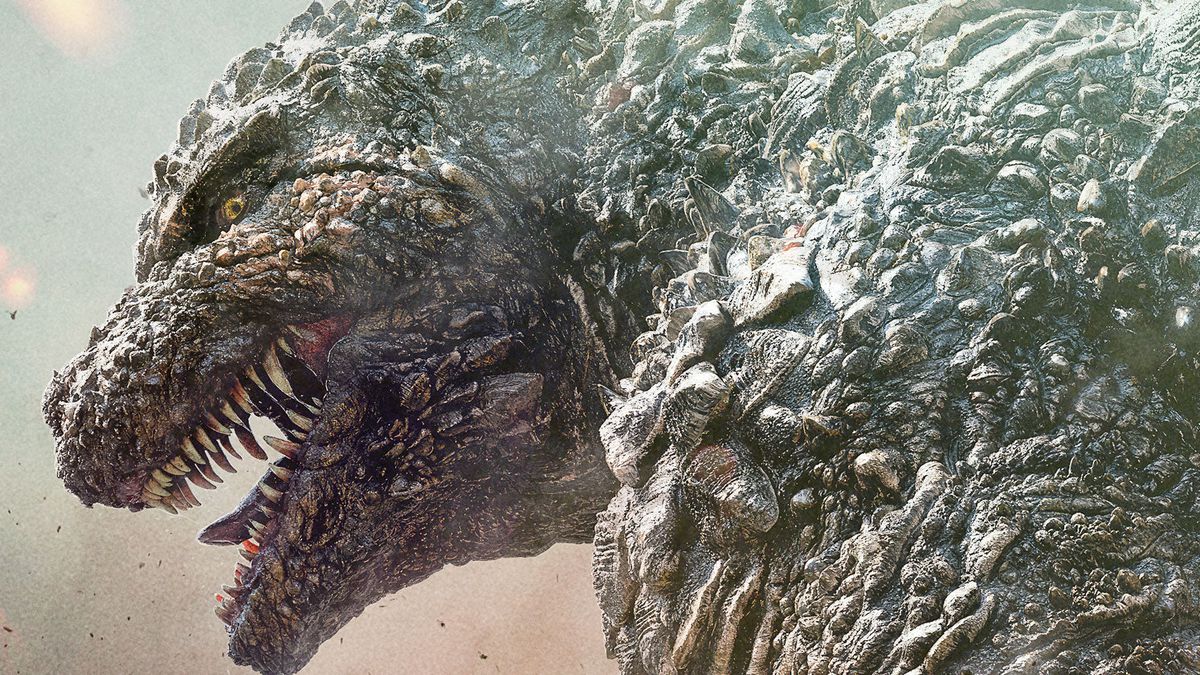A full decade ago, Toho’s Godzilla re-emerged on silver screens following an extended hiatus, with the help of their American partners at Legendary Pictures and Warner Bros. It stood to reason then that the King Ghidorah-sized grip over the box office the subsequent films in their “MonsterVerse” franchise had, would entice the monster’s original stalwarts to try their hand at a revival of their own for the Japanese market. Following the success of Hideaki Anno’s Shin Godzilla in 2016, and a trilogy of anime films following the King of Monsters in a dystopian future, Godzilla reclaims his throne in this winter’s Godzilla Minus One.
On the surface, the film attempts a contemporary update of the core themes, equating the character to humanity’s lust for experimentation and unintended consequences that resonated with audiences upon the Kaiju’s conception in 1954, even going as far as to return Godzilla to its roots as a creation of postwar obsession with nuclear weaponry. In execution, Minus One rises above the metaphor of mutually assured destruction and seeks to present a story about humanity’s compulsion to persevere in times of crisis, the gumption of the Japanese people to respond to national matters where governing powers fail to, and ultimately, the fragility and importance of human life.
Minus One delivers a uniquely human story that places importance on the people affected by the monster’s appearances. The main protagonist, a failed kamikaze pilot suffering from survivor’s guilt over a prior Godzilla attack, encounters a cast of similarly colourful characters including a displaced woman who is taken under the protagonist’s care, and a crew of minesweepers, all of whom share unfortunate circumstances requiring them to put their lives on the line, having freshly experienced war’s devastation firsthand. The character work in this film far supersedes any expectation placed on its audience at face value.
Godzilla’s previous stampedes were never defined by nuanced writing, and found value in their catharsis in depicting the rupturing of city blocks, and tumbling of titans. Minus One doesn’t represent a rejection of this notion, as it still displays a harrowing canvas of destruction in any frame where the monster crosses into the local territory, particularly impressing with its standout visual effects at a meagre $15 million USD budget, relative to the $170 million that funded the American production Godzilla: King of the Monsters in 2019. A marquee, music-devoid sequence of a submerged Godzilla trailing the protagonists across the ocean as they stalled for reinforcements remains a favourite among many spectacle-driven set pieces in the film.
The narrative chooses to spotlight a group of dishevelled people joining minds to confront seemingly impossible odds, puncturing a surprisingly thought-provoking story that gives weight to the circumstances and worldviews occupying each character’s headspace. Between the protagonist’s subconscious regret for cheating death, his companion’s impact on freeing him from that pain, and his friends harbouring a deep distrust for authority figures, the movie uncomfortably pulls from timely parallels with criticisms levelled against the real-world Japanese government, and its lack of immediacy regarding their response to pressing national matters, so long as a 160-foot irradiated lizard metaphorically represents inspirations drawn from the 2011 Tohoku earthquake, or the country’s struggles with recuperation following events such as the Second World War.
The majority of this review has been spent attempting to draw as few comparisons as possible to our domestically produced features starring the iconic monster, because it felt like a low blow to simply hold one film high as a critique against another movie that was always aimed at appealing to different audience sensibilities, especially with the productions of these features being halfway across the world from each other. At the same time, anyone who watches this film will subconsciously feel the need to contrast the two. Whereas the American “MonsterVerse” films have gradually pushed the monsters and mayhem into increasingly exaggerated scenarios that only satiate a baseline entertainment quota and struggle to remain memorable on their individual merits, Minus One feels like a thoughtful, methodical character piece that serves to strengthen the moments where the film dips its feet back into conventional Kaiju clashes. It’s the first Godzilla film in years to make it about the human perspective in a monster attack, and it should serve as a powerful example of giving meaning to the madness, however enjoyable the madness itself still is to this day.
Godzilla Minus One is currently in theatres having been released in North America on December 1, and screening at Cineplex Cinemas Yonge-Dundas and VIP at 10 Dundas Street.









